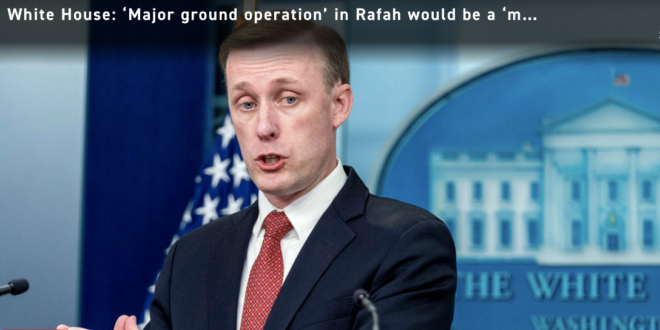Biden and Netanyahu spoke on the phone for the first time since Feb. 15.
Netanyahu denounced Schumer’s speech and has shown no signs of moderating his approach. He and members of Israel’s War Cabinet say an invasion of Rafah will launch within weeks. Israel estimates that about four Hamas battalions — roughly 3,000 militants, the same number of fighters Hamas used to perpetrate the Oct. 7 attack — are in and underneath Rafah.
A parade of U.S. officials have said an operation leading to many civilian deaths would be unacceptable to the administration, capped by Biden telling MSNBC earlier this month that such an event would cross his “red line.” The White House’s preference would be a smaller, more precise campaign to strike high-value Hamas targets.
The U.S., alongside Qatar and Egypt, is looking to broker a six-week cease-fire between Israel and Hamas that would see prisoners and hostages released and more aid distributed throughout Gaza.
Looming over all of it is growing tension between the governments of Israel and the U.S.
Biden is upset that Netanyahu won’t allow more humanitarian aid to enter Gaza by land, leading the U.S. to work with allies to drop assistance from the air and ship it via sea. His private complaints about Netanyahu have grown in recent weeks and he has told close advisers he believes that the prime minister was primarily concerned about hanging onto power — and was willing to extend the war to do so, according to two people familiar with the president’s thinking though not authorized to speak publicly about it.
Netanyahu, for his part, has been enraged that Biden keeps painting him as a far-right radical, unfeeling toward the enclave’s suffering Palestinians. And he was livid at what he deemed to be Schumer’s efforts to interfere with a sovereign nation’s political future, two Israeli officials said.
 Geostrategic Media Political Commentary, Analysis, Security, Defense
Geostrategic Media Political Commentary, Analysis, Security, Defense





